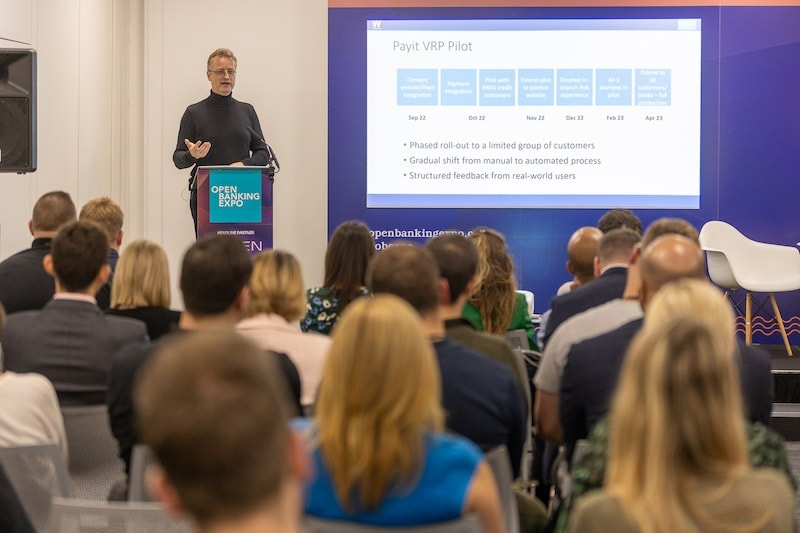Card fees are driving merchants to embrace variable recurring payments (VRPs) as an alternative payment method.
VRPs combine the low cost of direct debit with the speed and flexibility of cards, which has appealed to businesses struggling with the cost of processing fees.
Mike Mann, finance director of Williams Trade Supplies, explained that the cost of card fees led the firm to become the first UK merchant to explore the different use cases of VRPs.
Speaking at the Open Banking Expo last month, he said: “In 2021, our cost of taking card payments exceeded the entire salary bill for my finance team of 19 people including me.”
Williams gradually shifted from manual to automated payment processes, Mann explained. It was at this point that the company realised the benefits of VRPs, beyond lower expenses, he told delegates.
VRPs are completed quicker than traditional payment methods and reduce the risk of failed payments, useful when your company offers same day delivery.
“In terms of our benefit then: lower costs, quicker settlement, higher certainty we will get paid as well. There are also little things, like we control the narrative, so when we get a payment in, we know what the reference is because we set the reference.”
However, VRPs are not suited to every merchant and the payment method requires further improvements. Additionally, most customers do not understand the new payment method due to a lack of awareness, which has meant adoption of VRPs has been slow.
Despite this, institutions are waking up to the benefits. NatWest was among a host of organisations to make a VRP-related announcement when the bank penned agreements with Token, Tink and Yapily to offer VRPs to businesses and consumers.









